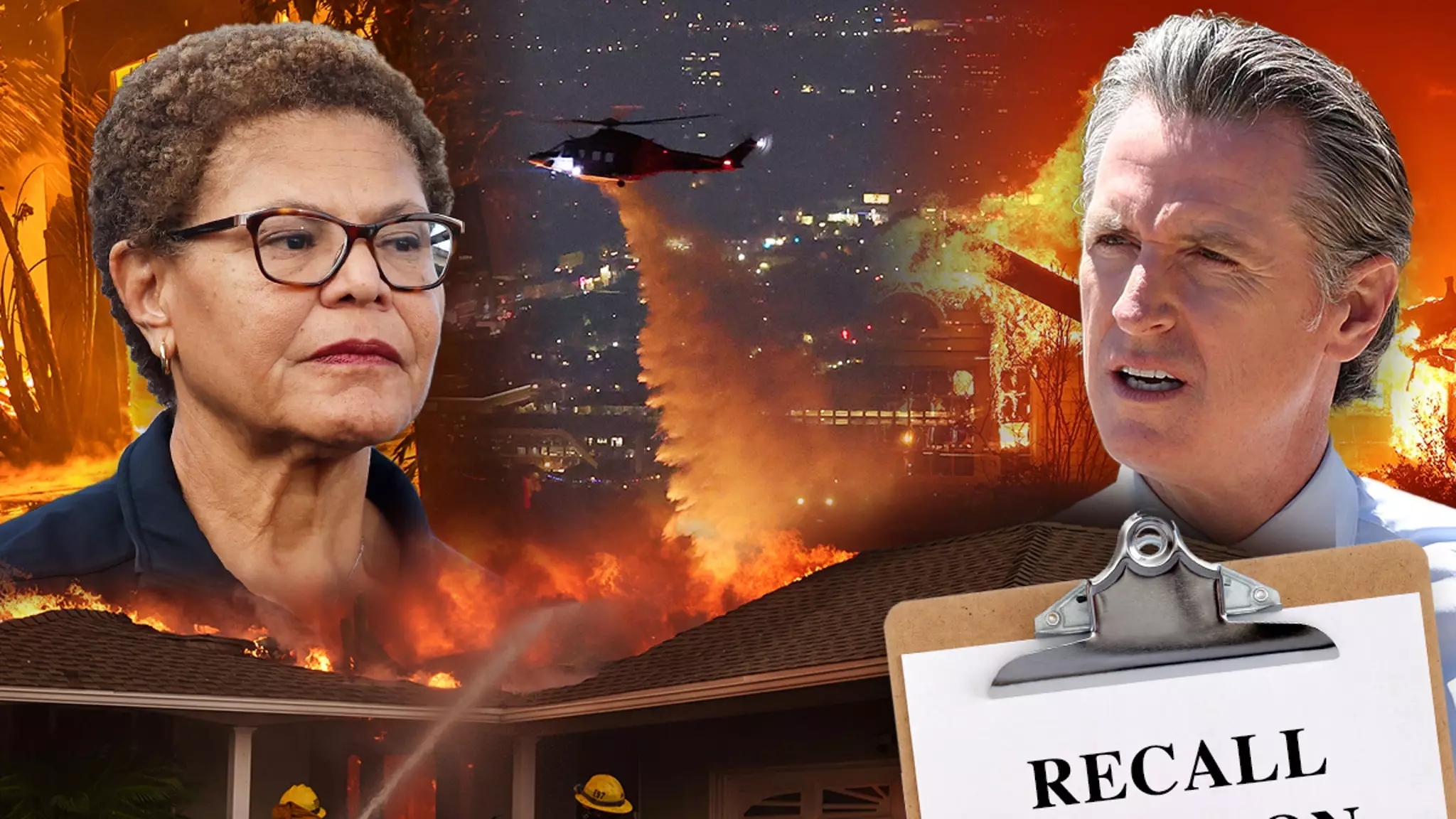In California, political unease hangs heavily over two prominent figures as they face recall petitions stemming from the destruction caused by fierce wildfires. Los Angeles Mayor Karen Bass and California Governor Gavin Newsom find themselves under scrutiny, though the momentum of the campaigns varies significantly. While the push to remove Bass appears to be gaining traction, Newsom’s recall bid struggles to establish itself, illustrating the disparities in public sentiment and political accountability in the face of crisis.
California’s relentless wildfires have devastated vast areas of land, reportedly consuming over 40,000 acres and resulting in tragic loss of life. This natural disaster has amplified scrutiny of political leaders whose responsibilities encompass disaster preparedness and public safety. In the eyes of many constituents, Bass’s leadership has come under fire, leading to the burgeoning petition for her recall. The fact that L.A. Fire Chief Kristin Crowley publicly criticized Bass’s administration over insufficient funding for fire services indicates a disconnect between leadership expectations and operational realities, further stoking the flames of discontent among the populace.
As the two petitions unfold against the backdrop of raging fires, mathematical thresholds become crucial. The bar to successfully initiate a recall against Newsom is set at an extraordinary margin—over 1 million signatures, reflecting 12% of the electorate that voted in the last gubernatorial election. Since its launch, the initiative amassed only about 27,000 signatures—a stark reality that underscores its uphill battle. Conversely, the recall effort targeting Bass requires around 200,000 signatures from registered voters in Los Angeles, and as it stands, the petition has garnered approximately 108,000 signatures. This partial success indicates a greater resonance of discontent among the city’s voters compared to that of the state.
The discourse surrounding these recalls engages not just political frustration but also cultural narratives. Prominent figures like Khloé Kardashian have openly criticized Bass, labeling her leadership as a “joke.” This highlights how public figures can influence perceptions of political accountability. Meanwhile, some celebrities expressed support for Bass and insinuated that racial dynamics might complicate the criticisms she faces. Such divisions underscore the multifaceted nature of political accountability, wherein cultural identity and political efficacy interweave in the narrative surrounding Bass’s embattled administration.
As these recall petitions show, political leaders are held to rigorous standards, particularly in the wake of emergencies like the wildfires devastating California. While Bass’s recall movement gains momentum, Newsom’s campaign faces significant hurdles. The outcomes of these efforts may not only affect the leaders involved but also set precedents for political action in response to environmental crises in California. Stakeholders are watching closely, as the ramifications of leadership accountability amidst disasters will undoubtedly influence future governance strategies and public trust in state leadership.


Leave a Reply